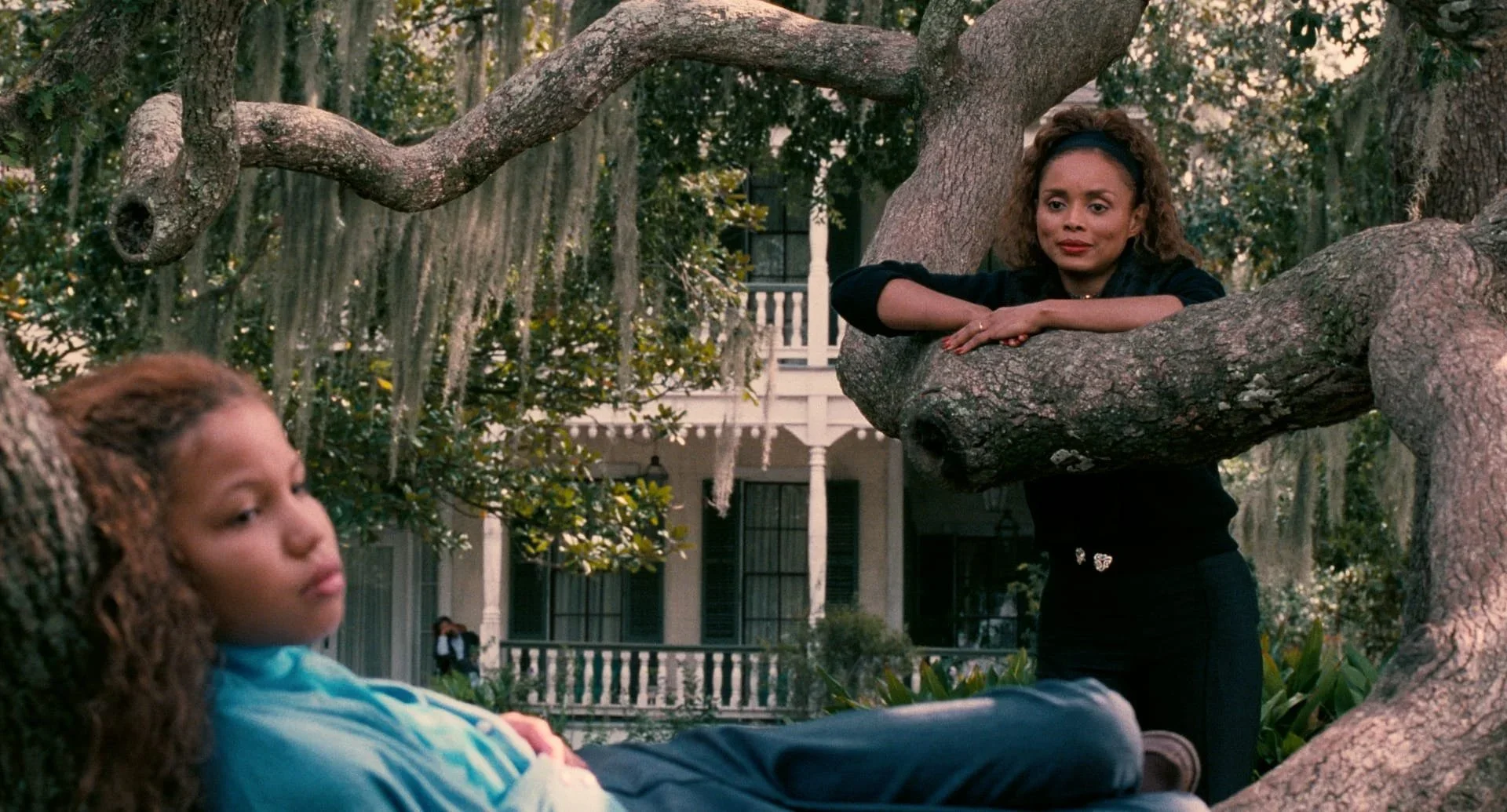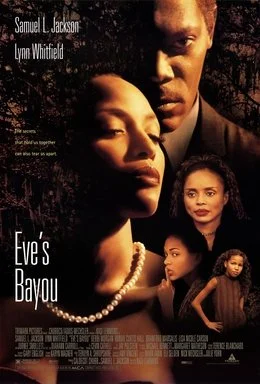Some films don’t just entertain you, they stay with you, reshaping how you see culture, history, and even yourself. Eve’s Bayou is that for me. It’s one of the first movies I obsessed over, a film I can return to endlessly and still find new layers in.
It deepened my love for Black artistry, for the richness of Black culture, and for the unapologetic beauty of being regal in your own skin.
Kasi Lemmons’ directorial debut is drenched in intention, every shot, every line of dialogue, every look between characters is deliberate. Even without having seen the director’s cut (yet), the magic is intact.
Eve’s Bayou a Kasi Lemmons’ Southern Gothic Masterpiece
Eve’s Bayou (1997), Kasi Lemmons’ haunting Southern Gothic debut, unfolds in a prosperous Creole community in Louisiana during the 1960s. Told through the eyes of 10-year-old Eve Batiste (Jurnee Smollett), the film weaves family secrets, infidelity, and spiritual gifts into a rich tapestry of truth and memory.
As Eve witnesses her father’s betrayals and navigates conflicting accounts of what really happened, visions, curses, and ancestral wisdom blur the line between justice and revenge.
With an unforgettable cast including Samuel L. Jackson, Lynn Whitfield, Debbie Morgan, Meagan Good, and Diahann Carroll, Eve’s Bayou captures the beauty, pain, and complexity of Black family life, where the gift of sight is both a blessing and a burden.
Family, Power, and the Gaze
At its heart, Eve’s Bayou is a story about family values under pressure, a dishonest man, and women navigating love, betrayal, and rivalry, all framed through the female gaze. What struck me was how it also carried the male gaze within it, not as fantasy but as lived reality, showing how girls and women are shaped (and wounded) by it.
Samuel L. Jackson’s Dr. Louis Batiste is charming, magnetic, and deeply flawed, a man ruled by lust and ego, misusing his social power not to heal but to feed his need for admiration. Lynn Whitfield’s Roz, elegant yet caged in a gilded cage, embodies the pain of many women who “have it all” but feel trapped in a blessing that’s actually a curse.
Spirituality as Second Nature
What makes this film so alluring to me is how naturally it treats spiritual gifts. In many Black families, across the diaspora, the gift of sight, intuition, or prophetic dreams isn’t exotic. It’s a birthright.
Aunt Mozelle (Debbie Morgan) is a seer whose visions guide others, even as she’s haunted by her own unresolved curses.
Eve herself, played by a young Jurnee Smollett, is the empathic observer, sensitive, just, and fiercely loyal. Her gifts are part of her world, not something to be feared.
This is where Eve’s Bayou feels like home: it rejects the propaganda that makes our ancestral gifts seem dangerous or foreign, and instead roots them in everyday life.
The Curse You Can’t Outrun
One of the most painful threads is Cisely’s storyline. Meagan Good, my birthday twin, plays her with heartbreaking nuance, the girl who loves her father in a way that blurs boundaries, leaving viewers wondering if she was “delulu” or if she truly experienced abuse. That ambiguity mirrors a reality many families never confront.
There’s also Mozelle’s curse, the men she loves always die. A generational pattern she can’t heal for herself, even while she’s a source of healing for others.
This duality, power for others, powerlessness for self, is something I’ve seen so often in real life.
A Time When Art Was Honored
Part of why Eve’s Bayou endures is its 90s DNA, a time when movies favored quality over quantity, when dialogue and slow-build suspense mattered. The film simmers; it doesn’t rush.
It’s political in its own quiet way, but beyond that, it’s art, lush cinematography, the Louisiana setting like a living character, and a cast that understood the weight of the story they were telling.
Diahann Carroll as Elzora is a perfect example, known for her elegance, she fearlessly inhabits the role of the unsettling voodoo woman, face painted, every gesture deliberate. An honor to the craft.
The Truth is Never Simple
By the end, we’re left uncertain about which story is “real,” but certain that truth is slippery, filtered through memory, emotion, and survival.
That’s the genius of Lemmons’ storytelling.
It’s no wonder Eve’s Bayou is preserved in the U.S. National Film Registry as culturally, historically, and aesthetically significant.
For me, it’s also soul-significant, a mirror to the complexities of family, the quiet normalcy of spiritual power, and the beauty and pain of being Black, gifted, and human.
Some films fade. This one only grows.
Love,
Mara
Ps. You can watch Eve’s Bayou via Amazone.



